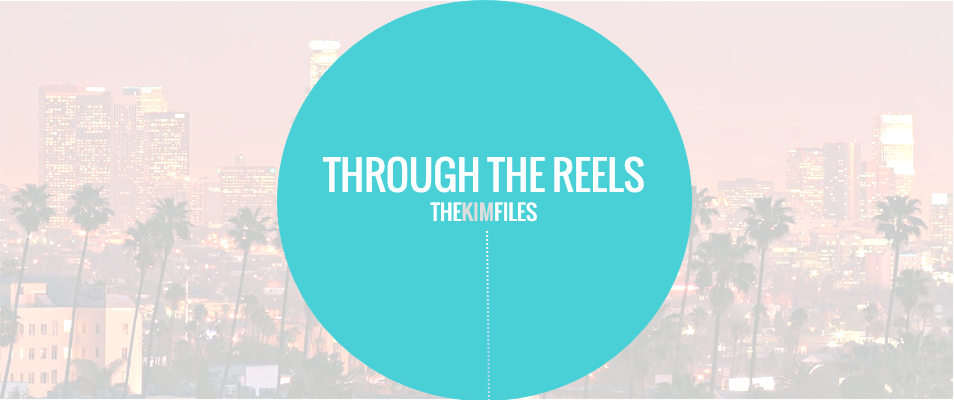 |
| Diane Keaton & Woody Allen in Annie Hall (1977) |
We seem to be watching comedies are less and less these days as this AFI Top 100 list progresses, and this time around, it's Annie Hall bringing us the laughs, coming it at #35. One of my favorite movies when I was in high school, it's a film that hold a special place in my heart, but one that I've also grown to view quite differently as I've gotten older. Writer/Director Woody Allen has always been known to tackle many taboo subjects—some physical, like sex and gender and drug use; some mental, like depression, anxiety, and compulsive disorders, to name a few. His unique and more-than-a-little personal perspective speaks less to the universality of love, and more to his own warped and selfish needs; something we find, inexplicably, that we can all relate to.
Allen stars as Alvy Singer, a self-important, Jewish intellectual living in New York City and working as a stand-up comedian/writer. He's also completely neurotic, and his mental neurosis unfolds before us as he recounts the rise and fall of his latest romance with flighty, waspy wannabe actress, Annie Hall (Diane Keaton), as well as a breakdown of his lifelong battle with his own personality that led him to date her in the first place. Twice divorced and perpetually inept in love, Alvy struggles with to figure out his love of women coupled with his innate need to rid himself of their presence once they've come into his life. As Annie falls in love with Alvy, the poor sucker just can't help but ruin it.
Alvy is a terrible boyfriend. Really, the worst. He's probably a terrible person, too. Allen waxes philosophically as Alvy, poetically weaving his bizarre ego and insecurities into a web of romantic dysfunction. The one benefit to Alvy's asshole-ishness is his clear awareness that he is one. Where we connect with him—likely the truest representation of Woody Allen himself—is that he puts himself first. It's only natural, and most of us do it, even if we pretend we don't. Alvy's years and years of therapy have solidified his own importance in his own life, and he refuses to veer away from that. Watching him fumble through his feelings for Annie only showcases this—if it's not one thing, it's another, because someone so self-satisfied could never be satisfied with anyone else. Allen's script is brilliant in its incorporation of psychology within the characters, and it's so seamlessly done.

This is the pinnacle of Woody Allen's incredibly impressive career. This is his "Oscar winner" for a reason, and that's because it might be the most serious of his early films. The jokes are fiercely witty, with much of the comedy coming from the simple Annie having to endure Alvy's snobbish intellectualism. It's hard not to identify with Diane Keaton as Annie, because she's so harmlessly normal. While there really isn't anything special about either of them, it's Alvy who thinks he somehow deserves someone spectacular—you know, because he's so extraordinary.
Annie Hall is the perfect example of the comedian mindset: a massive ego, brilliantly inflated and in need of feeding, coupled with severe insecurities. I've known more than my fair share of this personality type in my life; in fact, I had a big crush on this exact "guy" in high school. He was, for all intents and purposes, my Alvy Singer—and I was captivated by him, but it would never and could never have worked out; selfish self-sabotage, from him, not me. But these like-minded people never hesitate to try to make you feel small so they'll feel big, whether through commentary so high-brow, it's bound to go over your head (they think), or by simply dismissing you, as Alvy does to Annie.
The role of Annie Hall has followed Diane Keaton around her entire career, and that's hardly a detriment. She's an interesting character, not because she's particularly unique or muse-like... she's just normal. Compared to Allen's Alvy, she's the picture of sanity, regardless of her quirky wardrobe and cheeky grin (oh, and that pot-smoking crutch). Her insecurities aren't linked to ego or validation from others--she's a shy girl from a small town in a big city that loves nothing more than to chew people up and spit them out. She knows this, and knows that she's in for an uphill battle, but she's up for the challenge, and that makes her brave. She looks forward, and Alvy can do nothing but look back.

While individually, these two stars are spectacular talents, never more than here (though I'll give Keaton's Godfather role a tip of the hat), but together, the chemistry was never quite there. Alvy might be emotional, but he's not passionate, particularly about Annie. Whether it's because he doesn't let himself be, or if he's just incapable, I don't know, but it means that I'm not investing too hard in them. And their relationship really is the crux of the film. This isn't a detriment to the movie, not really; but it is a detriment to my enjoyment of it.
In the end, it's a story about the modern, self-conscious human condition, and these polar opposite characters embody that. I adore Annie Hall, even though she's obnoxious, and I can even kinda stand Alvy, even though he would be unbearable to date. Two people who can't get their shit together long enough to work it out. How universal is that?
Rating: ★★★★ / 5 stars
Check back next time for #34 on the list, Snow White and the Seven Dwarfs — or better yet, have your own viewing party and watch along with us!

No comments:
Post a Comment